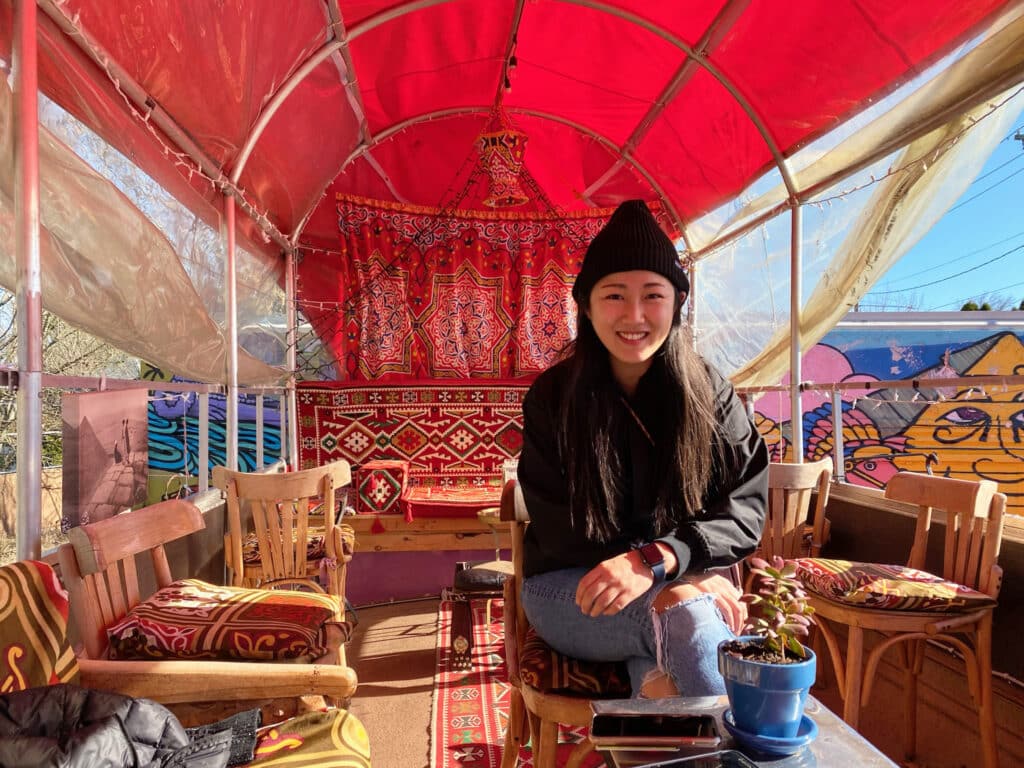
This is What I Feel About Anti-Asian Hate Crimes as an Asian Woman
By Hazel (Haeseo) Choi
Hazel (Haeseo) Choi was a 2022 Winter Fellow at Green 2.0 and graduated with a Master’s degree in Urban Planning from San José State University. She is passionate about community-driven solutions that meet economic, climate, and racial equity needs for communities of color. To mark the beginning of Asian American and Pacific Islander Heritage Month, Hazel writes about how the rise in Asian hate crimes affects her life and how to stand in solidarity against this injustice.
After the COVID-19 pandemic began, I often heard and saw news about crimes and violence toward Asians. At the very beginning of a barrage of anti-Asian attacks, I thought it was just a moment of pandemic-caused misinformation and the use of the derogatory term “China Virus.” However, anti-Asian hate crimes spiked more than 300 percent from 2020 to 2021 within New York, San Francisco, Los Angeles, and other cities, well exceeding their previous record numbers. This information compiled with the tragic news all across the country has made me feel powerless and vulnerable on the streets and while accessing public transportation, a shared sentiment among many Asian females.
Anti-Asian hate incidents are not new. This has been an ongoing problem but has not been brought to public attention until recently. According to Stop AAPI Hate, a national coalition that addresses anti-Asian and Pacific Islander hate, Asian women are at greater risk of hate crimes than Asian men, with 65% of anti-Asian hate incidents reported by women, which is nearly two-thirds of the total reported hate incidents.
Also, Asian females often experienced street harassment well before the pandemic. While Asian women are not the only objects of sexual violence and harassment, women of color are more likely to be targeted. Laura S. Logan, an associate professor of sociology at Hastings College, explains that some street harassers are motivated to target victims because of their race, sexual orientation, age, size, ability, language, citizenship, religion, or ethnicity. Violence on the streets stems from discrimination and then makes inequalities deepen in places that should belong to everyone.
After anti-Asian hate crimes increased New York City officials announced the Subway Safety Plan to tackle public safety concerns and support people experiencing homelessness and severe mental illness on New York subway stations. The plan includes expanding more police patrols, mental health clinicians, and social service outreach workers into the subways. I’m unsure what impact this plan will have on the homeless crisis and mental health issues that many big cities continue to struggle with, but the city intends to collaborate with a mental health treatment service, which is an appropriate start.
Public safety is fundamental regardless of race, gender, class, and ability. As New York City’s plan highlighted, “public safety and justice go hand-in-hand.” Recognizing hate-related crimes and becoming an ally are the most significant methods to respond to and prevent these incidents.
I would like to add one more thing — share your feelings with your friends and colleagues. Building a bond of sympathy around the problem of hatred against Asian-Americans and Pacific Islanders is a powerful tool to move citizens and government leaders to action. Also, sharing your vulnerability can heal your mental health — which is what I’ve experienced. That’s why I started telling my colleagues here at Green 2.0 how I’ve been feeling about these anti-Asian crimes.

For more information on Hazel Choi, follow her on LinkedIn @Hazelchoi. To learn more about Anti-Asian Hate Crimes, visit Stop AAPI Hate.